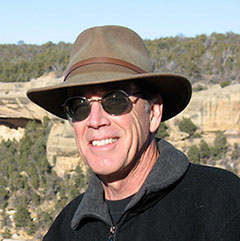A Quote by Daniel Dennett
The juvenile sea squirt wanders through the sea searching for a suitable rock or hunk of coral to cling to and make its home for life. For this task, it has a rudimentary nervous system. When it finds its spot and takes root, it doesn't need its brain anymore so it eats it!
Related Quotes
For nothing is fixed, forever and forever, it is not fixed; the earth is always shifting, the light is always changing, the sea does not cease to grind down rock. Generations do not cease to be born, and we are responsible to them because we are the only witnesses they have. The sea rises, the light fails, lovers cling to each other and children cling to us. The moment we cease to hold each other, the moment we break faith with one another, the sea engulfs us and the light goes out.
Coral reefs, the rain forest of the ocean, are home for one-third of the species of the sea. Coral reefs are under stress for several reasons, including warming of the ocean, but especially because of ocean acidification, a direct effect of added carbon dioxide. Ocean life dependent on carbonate shells and skeletons is threatened by dissolution as the ocean becomes more acid.
By immersing ourselves with our consciousness in a supersensible world, we now learn a new kind of thinking, a new life of mental pictures, one that is not dependent on the nervous system in the way ordinary thinking is. We know that previously we have had to make use of our nervous system, but now we no longer need our brain.
Say the sea. Say the sea. Say the sea. So that perhaps a drop of that magic may wander through time, and something might find it, and save it before it disappears forever. Say the sea. Because it's what we have left. Because faced by the sea, we without crosses, without magic, we must still have a weapon, something, so as not to die in silence, that's all.
I roamed the countryside searching for the answers to things I did not understand. Why shells existed on the tops of mountains along with the imprints of coral and plant and seaweed usually found in the sea. Why the thunder lasts a longer time than that which causes it and why immediately on its creation the lightening becomes visible to the eye while thunder requires time to travel. How the various circles of water form around the spot which has been struck by a stone and why a bird sustains itself in the air. These questions and other strange phenomena engaged my thought throughout my life.
I recently read in the book My Stroke of Insight by brain scientist Jill Bolte Taylor that the natural life span of an emotion—the average time it takes for it to move through the nervous system and body—is only a minute and a half. After that we need thoughts to keep the emotion rolling. So if we wonder why we lock into painful emotional states like anxiety, depression, or rage, we need look no further than our own endless stream of inner dialogue.








































